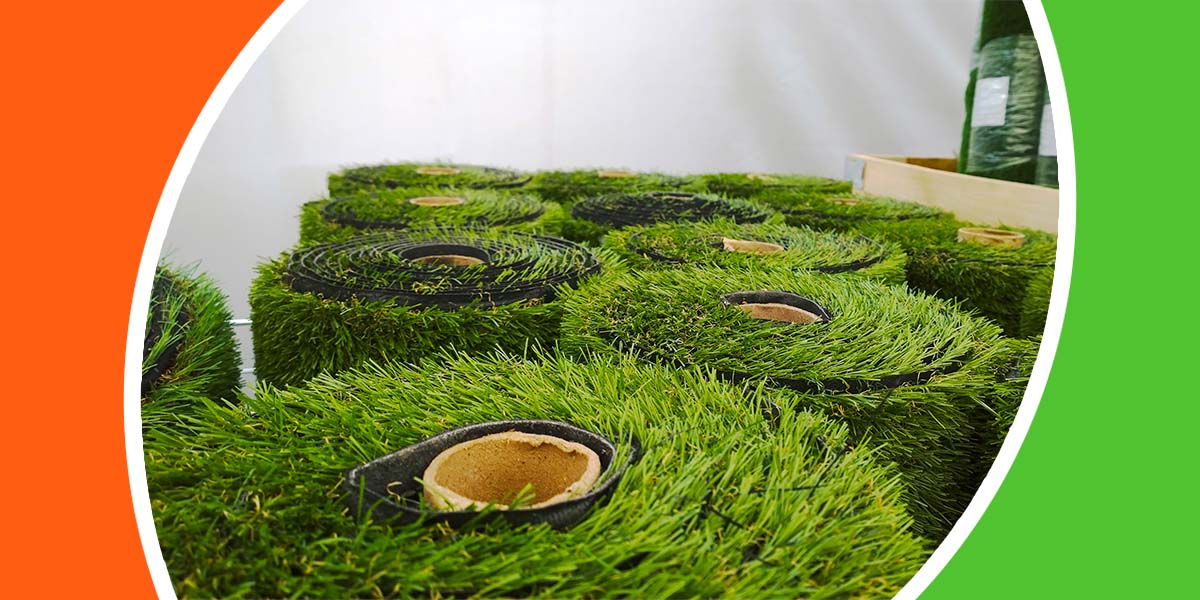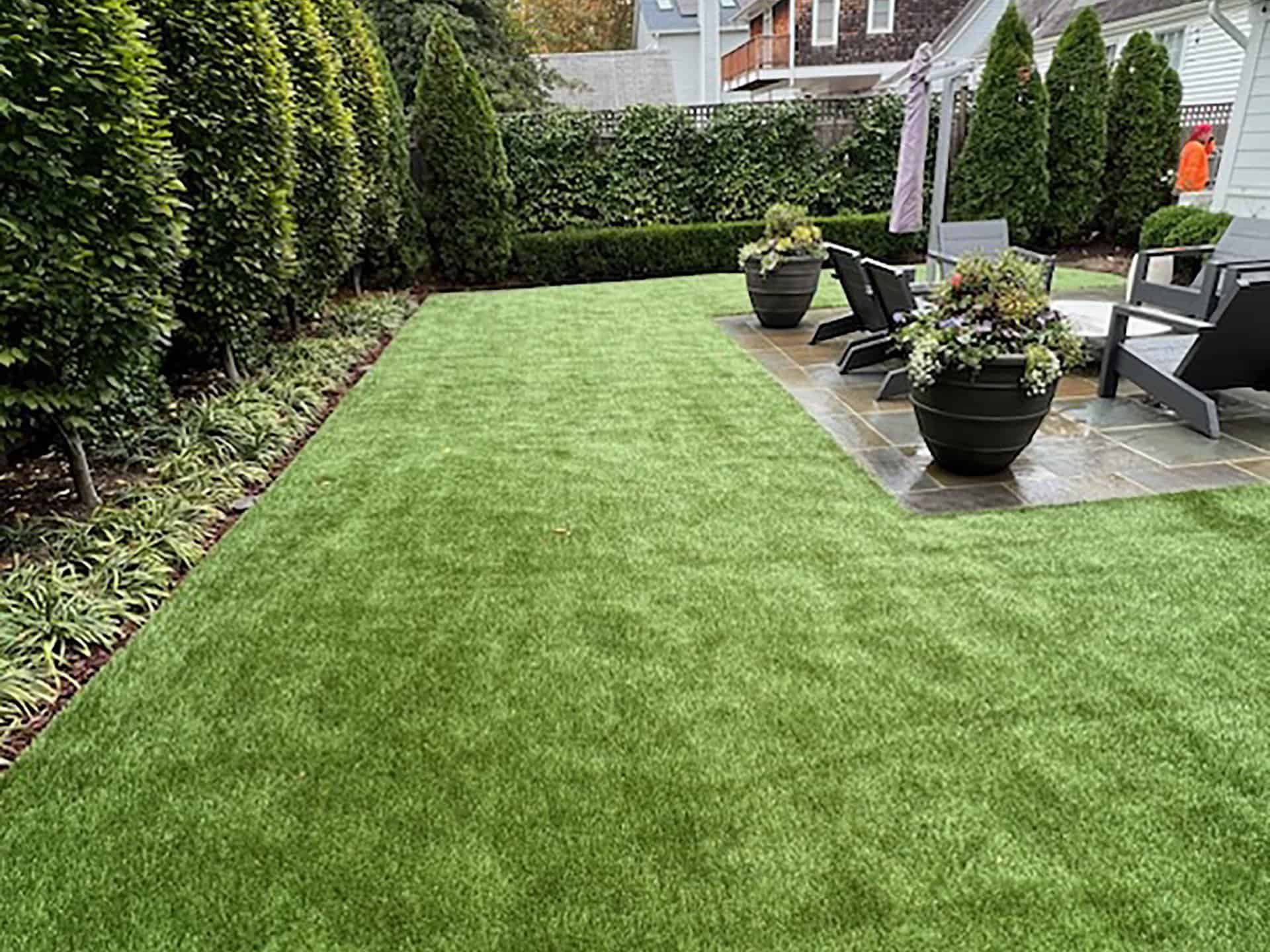Custom Turf Installation Phoenix AZ for Homes, Businesses, and Play Areas
Custom Turf Installation Phoenix AZ for Homes, Businesses, and Play Areas
Blog Article
Look Into the Environmental Benefits of Opting for Artificial Turf Solutions
The adoption of man-made lawn solutions provides a compelling possibility to resolve pressing environmental challenges. By dramatically decreasing water usage and reducing the application of damaging chemicals, these alternatives not just advertise sustainable landscaping however likewise safeguard local ecological communities. The reduced carbon impact linked with reduced maintenance tasks contributes to a more lasting technique to land administration. The ramifications of these advantages extend past plain conservation efforts, elevating questions about their lasting impact on environment preservation and total environmental balance. Checking out these measurements reveals a complicated interaction worth taking into consideration.
Water Preservation Advantages
One of the most considerable advantages of artificial lawn is its capacity to preserve water. In comparison, synthetic lawn does not need watering, significantly reducing the total demand for water resources.
By eliminating the demand for normal watering, man-made lawn contributes to lasting landscape techniques and assists reduce the environmental effect of too much water usage. The conservation of water prolongs to the reduction of runoff, which can lead to soil disintegration and waterway air pollution.
Additionally, the setup of fabricated turf enables communities and homeowners to designate water sources much more effectively, focusing on necessary uses such as alcohol consumption water and farming. The change in the direction of synthetic grass not only promotes responsible water usage yet also aligns with broader ecological objectives focused on preserving all-natural sources.
As areas significantly focus on sustainability, the water conservation advantages of fabricated lawn offer a compelling instance for its fostering in property and industrial landscaping projects.
Minimized Chemical Usage
The transition to synthetic turf substantially decreases the dependence on chemical therapies frequently utilized in natural yard maintenance. Conventional turf monitoring typically entails the application of herbicides, chemicals, and plant foods to advertise growth and control pests. These chemicals can pose dangers to human health, neighborhood wildlife, and the environment, contributing to dirt and water contamination.
On the other hand, synthetic grass removes the need for these dangerous compounds. Once set up, it requires minimal maintenance, mainly consisting of regular cleansing and infrequent infill replenishment. This reduction in chemical usage not only profits the prompt environment however also adds to wider eco-friendly security. By minimizing the launch of artificial compounds right into the community, synthetic grass advertises much healthier soil and water systems.
In addition, the lack of chemical overflow linked with synthetic grass installations helps secure regional rivers from contamination, supporting marine life and keeping biodiversity. Artificial turf companies phoenix. As neighborhoods progressively focus on sustainable practices, choosing synthetic grass presents a viable solution that straightens with ecological preservation goals. Through this shift, building proprietors can take pleasure in lush environment-friendly areas without compromising ecological health and wellness, leading the way for a much more lasting future
Reduced Carbon Footprint

Additionally, the setup of synthetic grass can cause considerable water preservation. Natural grass require considerable quantities of water for irrigation, which not just includes in the carbon footprint linked with water extraction and therapy but also pressures local water resources. In comparison, artificial lawn needs minimal upkeep, requiring no watering, thus significantly decreasing water use and its linked energy prices.
Furthermore, the long life of synthetic grass contributes to its reduced carbon influence. With a life expectancy of approximately 15 years or more, the requirement for frequent substitutes is diminished, causing much less waste and lower energy usage in production and getting rid of standard yard choices. Generally, synthetic grass provides a lasting option for ecologically aware landscaping.
Environment Conservation
Habitat preservation is a critical factor to consider in the debate over landscape design selections, specifically when comparing synthetic grass to natural turf. All-natural yard yards commonly need comprehensive upkeep, including the usage of herbicides, pesticides, and plant foods, which can negatively influence local communities. These chemicals can seep right into the soil and rivers, hurting native vegetation and animals and interrupting local habitats.
On the other hand, man-made lawn presents an opportunity to decrease the eco-friendly impact of landscape design. By view it now choosing artificial turf, house owners can lessen the disturbance of all-natural habitats related to standard yard care techniques. Synthetic grass removes the need for unsafe chemicals, consequently securing neighboring wildlife and preserving the stability of surrounding ecological communities. Moreover, the installation of artificial turf can cause the conversion of previous lawn areas right into more biodiverse landscapes, such as pollinator gardens or indigenous plant locations, which can support regional wild animals.
Eventually, the change to synthetic grass not just preserves water and reduces upkeep efforts yet also cultivates an extra unified relationship in between human tasks and the natural surroundings, promoting environment conservation while doing so.
Long-Term Sustainability
Lasting sustainability is a crucial consider reviewing the advantages of synthetic grass over typical lawn lawns. One of the most considerable benefits of synthetic grass is its resilience; it can last up to 15-20 years with minimal maintenance, whereas all-natural lawn calls for regular reseeding and replacement. This durability decreases the need for continuous resources, such as water, plant foods, and pesticides, which are necessary for maintaining a healthy yard lawn.
Additionally, synthetic grass contributes to a decrease in carbon emissions connected with grass care tools. Conventional yards typically require gas-powered mowers, leaners, and blowers, every one of which contribute to air contamination. Arizona turf. In contrast, man-made turf gets rid of the demand for such equipment, promoting a cleaner atmosphere
In addition, the production of man-made lawn significantly utilizes recycled materials, improving its sustainability account. As makers adopt green practices, the environmental footprint of synthetic grass remains to lessen.

Final Thought
The fostering of man-made lawn remedies offers considerable ecological benefits, consisting of considerable water conservation, decreased reliance on dangerous chemicals, and a reduced carbon impact. Fabricated grass aids in protecting natural environments by minimizing land disturbance and advertising long-lasting sustainability through the usage of durable materials. Collectively, these elements underscore the possibility of synthetic grass to contribute positively to ecological health and supply a sensible option to conventional landscape design practices in a significantly resource-conscious world.
In comparison, synthetic turf does not require watering, substantially decreasing the general demand for water sources. By reducing the launch of artificial substances into the ecological community, man-made turf advertises much healthier soil and water systems.
Moreover, the installation of fabricated lawn can result in significant water conservation. In comparison, artificial grass needs marginal maintenance, needing no watering, thereby substantially lowering water usage and its connected power costs.

Report this page